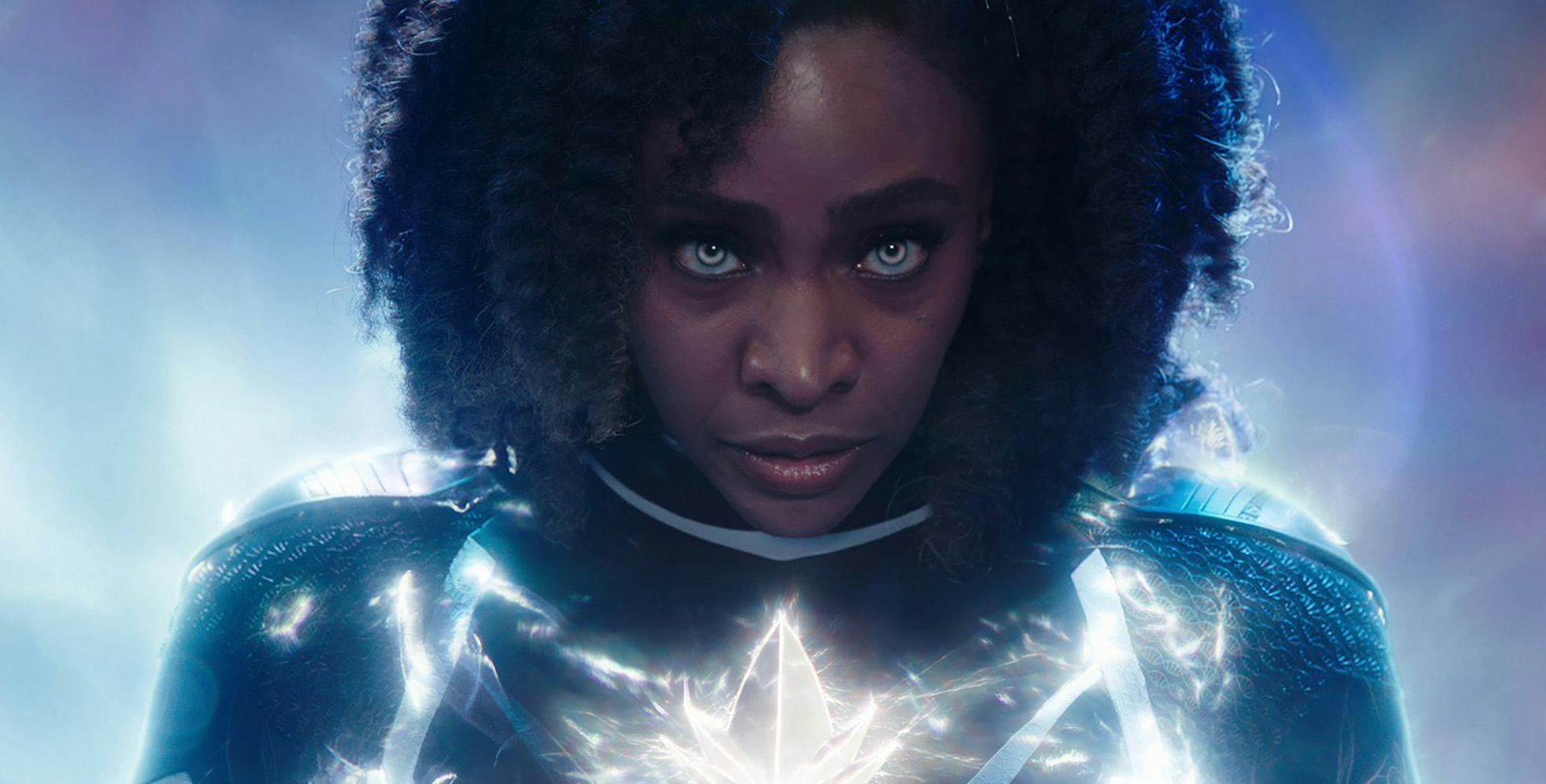
When Black Panther premiered in 2018, it seemed like Hollywood was at the start of a major shift. Headlines the world over heralded the solo debut of Marvel’s first Black hero, while audiences turned up in droves to witness a historic event.
“It was inescapable in a lot of ways,” Bobbi Miller, a culture critic and host of pop culture podcast The Afternoon Special, tells Inverse. “It felt like everyone was on the same page about making this movie feel as important as it was. That was a really special time.”
The groundswell of support for Black Panther was unprecedented. Black celebrities funded screenings of the film out of their own pockets, while critics and fans alike were enraptured by the world of Wakanda. Black Panther went on to become Marvel’s first Best Picture nominee at the Academy Awards, securing the studio the prestige that had eluded it for a decade. Everyone wanted a piece of its success, and Marvel seemed determined to re-create that magic. After Black Panther came Captain Marvel, the first Marvel film to feature a female hero center stage. The studio was actively hiring more directors of color, from Taika Waititi to Chloé Zhao. Big franchises had finally caught up with audience pleas for genuine diversity and inclusion. It felt like a new world.
But did any of it stick?
“Oftentimes, studios will put Black actors and Black directors out there and just leave them to the wolves.”
Just five years after Black Panther inspired a wave of big-budget movies with more inclusive casts, the effects already appear to be petering out. The industry is slipping back into old habits, while the filmmakers who championed the movement are falling through the cracks. This feels particularly evident for The Marvels, the 33rd film in Marvel’s Cinematic Universe — and the lowest-grossing in its 15-year history.
Despite its flaws, The Marvels is an incredibly important film, owing a lot to Black Panther’s success. Director Nia DaCosta is the first Black woman to helm any Marvel property and the second Black filmmaker to direct an MCU film after Ryan Coogler. Her introduction comes at a time when Black female directors are still fighting to be seen and heard in genre spaces, but the reception of the film reveals just how dire things remain for marginalized filmmakers.
“We put a lot of onus on bringing marginalized creators into the mainstream,” Miller says. “Oftentimes, studios will put Black actors and Black directors out there and just leave them to the wolves.”
Middling reviews and disappointing box office earnings turned The Marvels into the face of “the Marvel problem,” embodying the franchise’s waning focus on coherent storytelling and a general sense of superhero fatigue. But it’s also inadvertently answered a question that few are prepared to unpack: Is Hollywood’s latest push for identity-forward content a real priority or just another trend on its way out?
The myth of the “Black Panther effect”
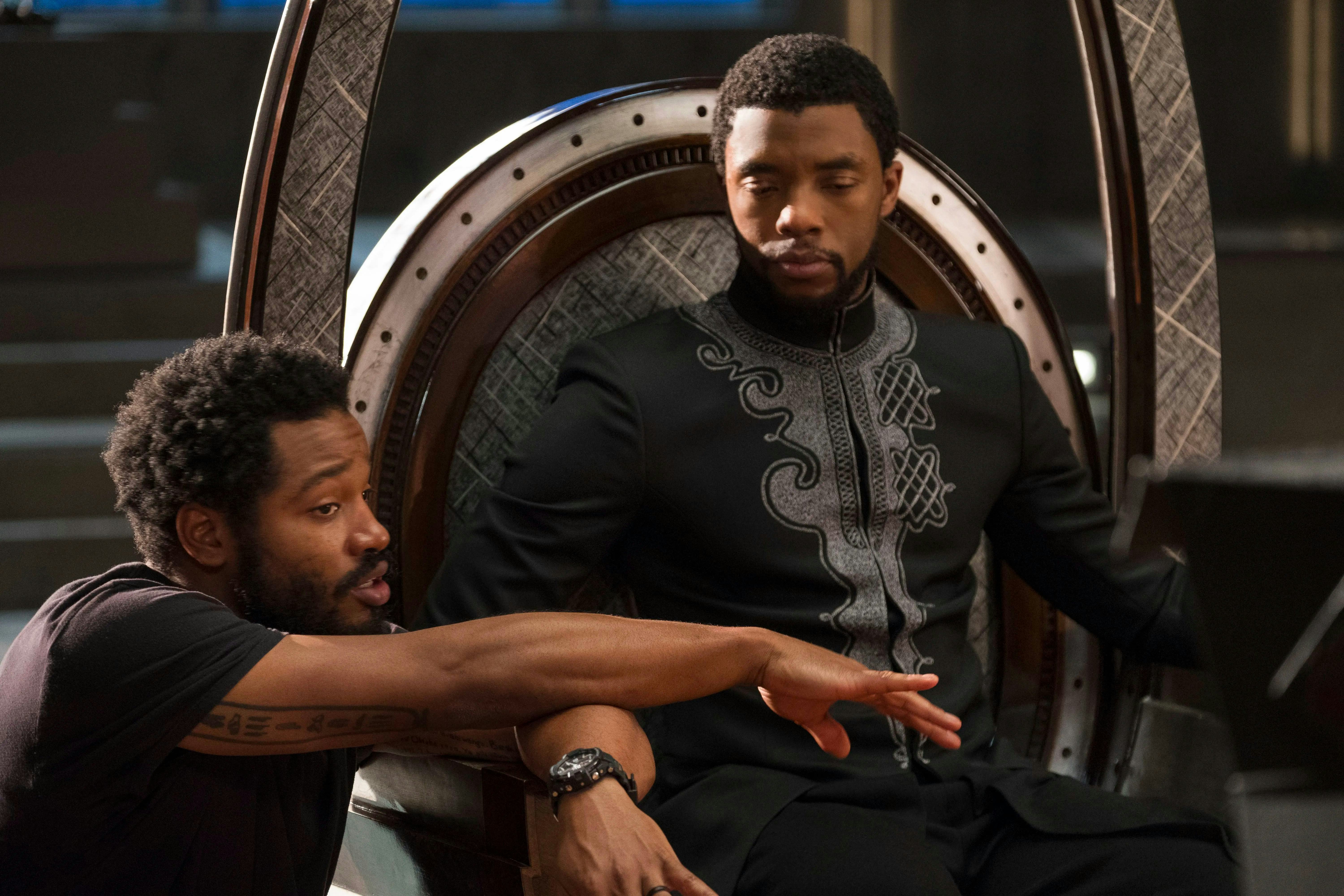
“Just because Black Panther made a couple billion dollars, it doesn’t mean the entire landscape has changed,” said Los Angeles Times critic Robert Daniels in conversation with The Face. “If we train our eyes to the entire landscape, we can still see the inequities… While it’s gotten better, in some respects, for people of color and women it hasn’t.”
A 2022 study by USC Annenberg’s Inclusion Initiative revealed increasing disparities in Hollywood. Of the 111 directors helming the top-grossing movies of the year, only 9 percent were women, a significant drop from 2021’s already-dismal 12.7 percent. Just 20 percent of films in 2022 were helmed by people of color. Of course, 20 percent is much better than nothing at all, but breaking into the industry is hard enough already.
In a way, Marvel has been doing its part by hiring more diverse directors fresh off the independent circuit. Ryan Coogler is just one of their success stories, having directed just two films before he was tapped to helm Black Panther. But that strategy often backfires when indie directors are dropped into the studio system with very little experience, which has become more and more common in the aftermath of Black Panther.
“We’re quicker to critique pieces of media that are by and for marginalized communities.”
The studio’s unprecedented indie-to-blockbuster pipeline definitely has its upsides: without it, the Russo brothers’ Captain America: The Winter Soldier or Jon Watts’ Spider-Man trilogy wouldn’t exist as we know them. But for every triumph, there’s also disappointment — and while not every Marvel film can be a winner, the backlash is growing increasingly pointed against more marginalized voices.
According to Jennifer Pollitt, assistant director of Temple University’s gender, sexuality, and women’s studies program, that double standard has always been there.
“We’re quicker to critique pieces of media that are by and for marginalized communities,” Pollitt tells Inverse. “[They’re held] not only to a double standard but a higher standard in expectation.”
That expectation puts countless filmmakers under unfair scrutiny, and as Marvel continues its downward streak, they seem to be the ones shouldering the blame more often than not. Taika Waititi was once lauded as the savior of the Thor franchise, as his colorful, more irreverent sensibilities breathed new life into the character in Thor: Ragnarok. Following the mixed reception to his latest Thor film, Love and Thunder, he quickly became a target of derision. Another Thor film is still on the table, apparently, but Waititi won’t be returning for it.
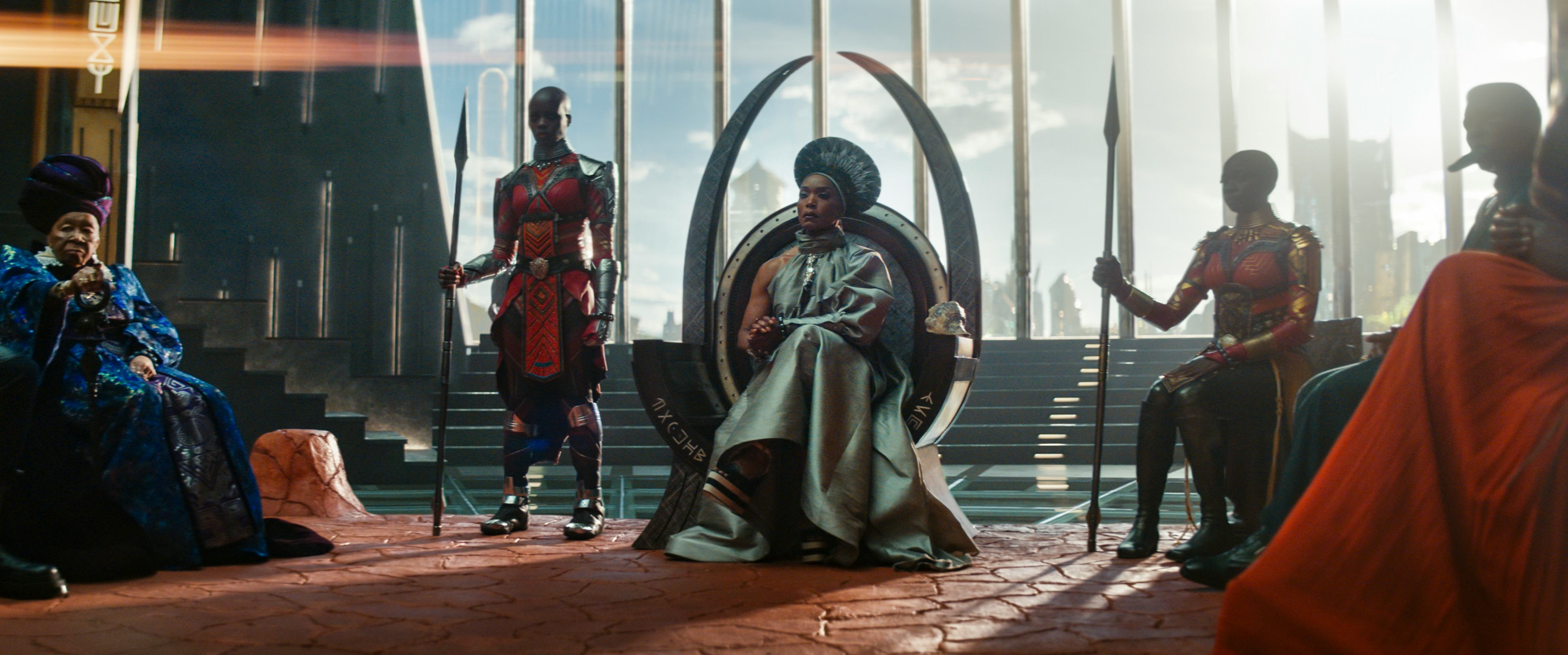
The heel-turn against Waititi may just be a symptom of increasingly toxic fandom — but compared to backlash that other Marvel films have faced, there may be a bit more to it. This new brand of ad hominem criticism culminates with The Marvels and director Nia DaCosta, who has been shouldering the brunt of the film’s failure before audiences even had the chance to see it.
It doesn’t help that The Marvels’ promotion window coincided with the longest actors strike in history, which meant that DaCosta was initially tasked with promoting the film alone. But the director has been the target of subtle scrutiny all the same — not only from fans but from publications like Variety and The Hollywood Reporter.
There’s a subtle difference between the way that critics discuss The Marvels and DaCosta, and how they discuss her white counterparts. Consider a film like Ant-Man and the Wasp: Quantumania, which embodied Marvel’s woes long before The Marvels came along. But for all its flaws, its director is scarcely mentioned in criticisms against the film.
“No one is looking at Peyton Reed and saying, ‘Ah, that’s the person who killed the MCU,’” Miller says. “He’s kind of able to get off unscathed.”
“Female directors, or directors of color, [don’t] get the chance to make a flop.”
It’s not uncommon for Marvel to let its product speak for itself or to let directors defend their work. But the studio’s silence in this context has become pretty damning, especially as it highlights the most glaring flaw in Marvel’s new appetite for inclusivity: the issue of exceptionalism.
“I don’t think that female directors or directors of color get the chance to make a flop,” Miller explains. “The opportunity to grow and find yourself as a director just doesn’t [happen] in the same way it does for white directors… You have to operate at perfection every single time you put out a movie.”
Within the studio system, however, directors like DaCosta may not have the support system they need to tell stories on their terms. “When [studios] don’t actually put any real work into bringing up these filmmakers, investing in them, allowing them to tell the stories that they want to tell … they can just abandon it if it doesn’t yield the success markers that they’ve set for it,” Miller says.
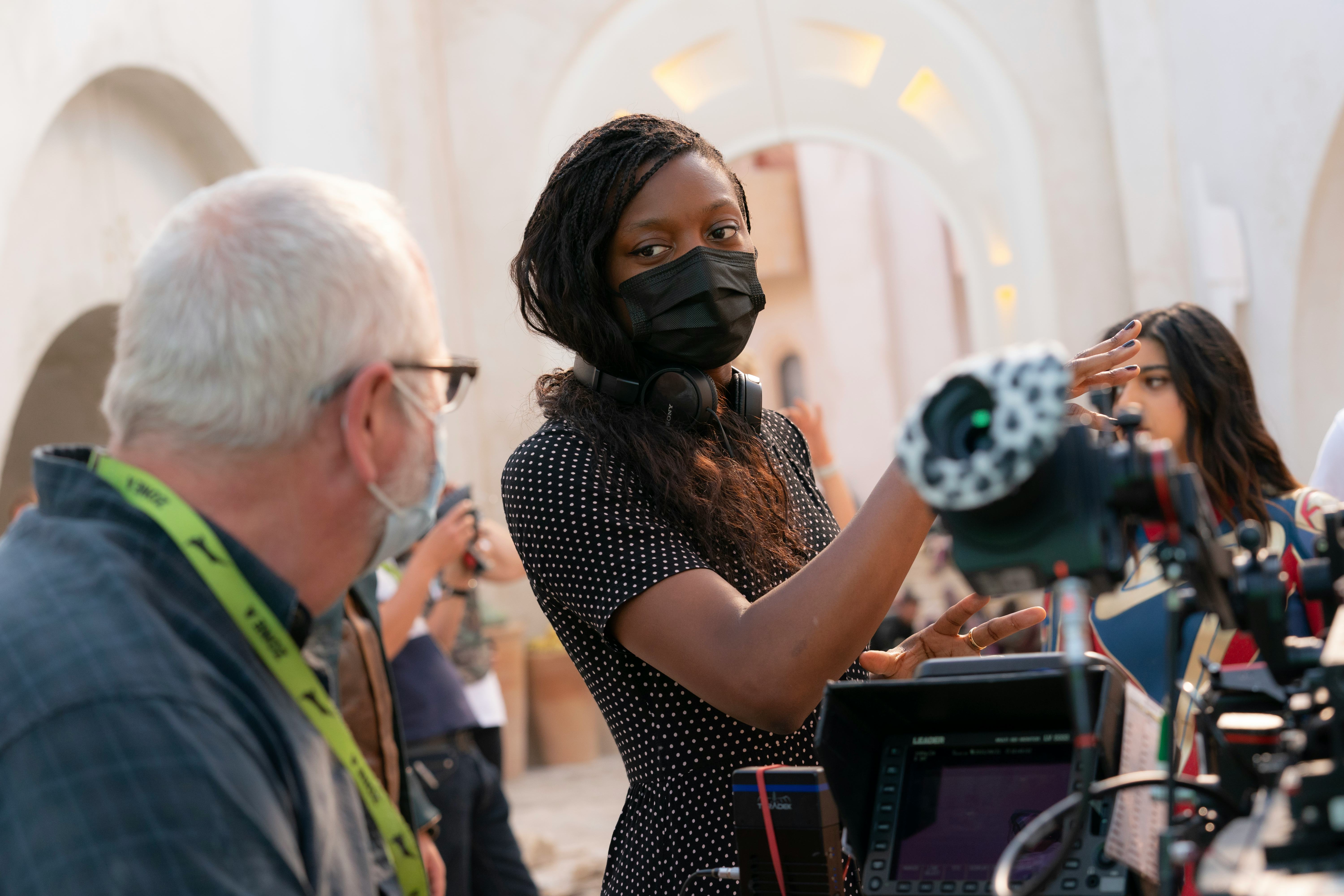
Marvel might be working hard to re-create Black Panther’s success — but according to Miller, “it doesn’t seem like they’re really investing in what made Black Panther work.”
Diversity was but “a piece of what made the movie so successful,” Miller says. Black Panther didn’t skimp on telling a complete story, either, something that seems to elude The Marvels and most of its contemporaries in the MCU. The newer film lacks the coherent pacing and compelling villain that strengthened Black Panther. While the chemistry of its leads certainly propels the film where it counts, it’s not quite enough to give The Marvels a sense of purpose or place.
Combined with the “anti-woke” backlash facing Marvel’s most recent efforts, The Marvels finds itself at an uncomfortable crossroads. “All of these things are stacking up against each other that are preventing [The Marvels] from being judged on its own, or even in good faith,” Miller says.
Higher, further, faster... eventually
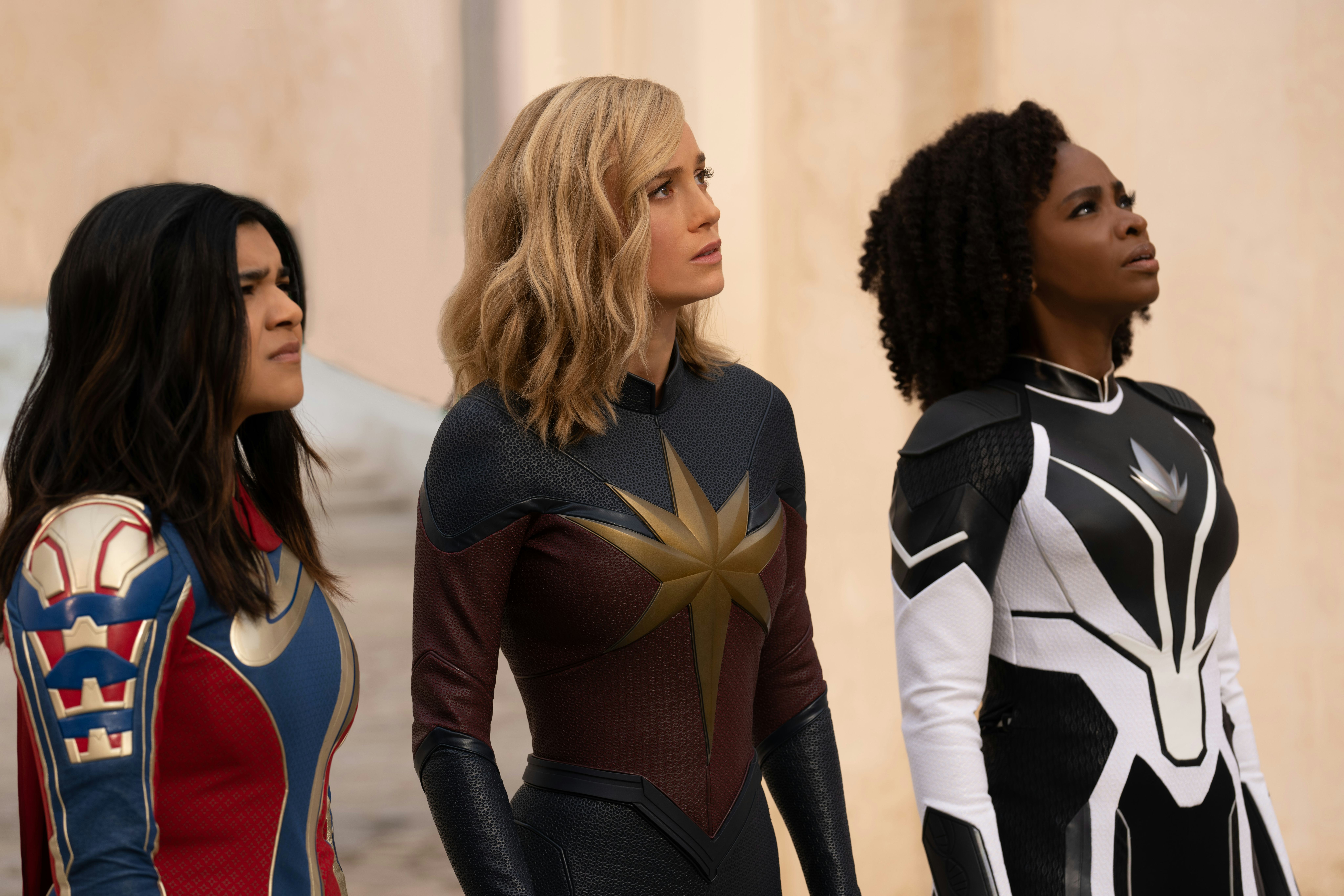
So where exactly does Marvel go from here? Pollitt believes The Marvels holds the key to addressing the tangled issues plaguing fandom spaces.
“That’s the conversation to start,” she says. “Let’s explore why there are different expectations based on race, gender, class, or for a female director versus a male director.”
Condemning unfair criticism when it arises could be another key to righting a sinking ship. The teams behind Disney’s biggest franchises “have been catering a bit too much” to “smaller subsets of their fandoms,” says Miller. The fandoms that buoy these properties have been overrun by a vocal minority, most of whom object to anything remotely resembling diversity. In recent years, countless franchises have come under fire for their attempts to decenter whiteness. As Marvel is one of the most visible franchises at the moment, “fan” outrage here has become the most prominent — but Marvel rarely acknowledges the backlash, even when it affects its most visible collaborators.
“There is a symbiotic relationship between studio and fandom, but at the end of the day, the studio sets the tone.”
Marvel needs to focus on protecting its actors and directors, most of whom have become “collateral damage” in fandom criticism. “There is a symbiotic relationship between studio and fandom,” Miller says, “but at the end of the day, the studio sets the tone. Trust that the people you’ve tasked with telling that story can do it to the best of their ability. Stick behind your actors, directors, and screenwriters because [filmmaking] is a collective thing. You have to work as a team.”
For a while now, Marvel Studios has tried to have its cake and eat it too. After the success of Black Panther proved the merits of identity-forward, idea-driven content, Marvel pursued that more frequently, but those efforts can clash with the studio’s unified “house style.”
No one’s discounting the feat that Marvel has pulled off in the past decade and change, but the MCU is at its best when individuals can put their own stamp on the franchise. Per Miller, Marvel could benefit from taking a back seat more often: “Allow the work to speak for itself, and let the community rally behind something when they know it's special.”







